A “hotspot” for asylum seekers is opening on Samos, which inmates describe as “Guantanamo”. The EU Commission finds such facilities dignified, and therefore finances them completely. The pilot project will be monitored with motion detectors, behavioural recognition and drones.
Two weeks ago, the Greek government opened the first of six new camps for refugees on the island of Samos. The new “Closed Controlled Access Centre” is located about eight kilometres from the nearest small town in the middle of nowhere. It consists of hundreds of containers with air-conditioning, recreational rooms, a food bank, sports facilities and a playground, which, like all the other installations, are behind a double fence secured with NATO razor wire. Up to 3,000 people can be fenced in there, currently it started with 600.
The camp is divided by colour into regions and languages; green housing units are reserved for Arabic speakers, blue for Afghans and red for people of African origin. A purple area marks the COVID-19 quarantine station, and there is also a deportation prison on the premises. Announcements can be made to all inmates via a loudspeaker system.
Pushbacks against international law during opening
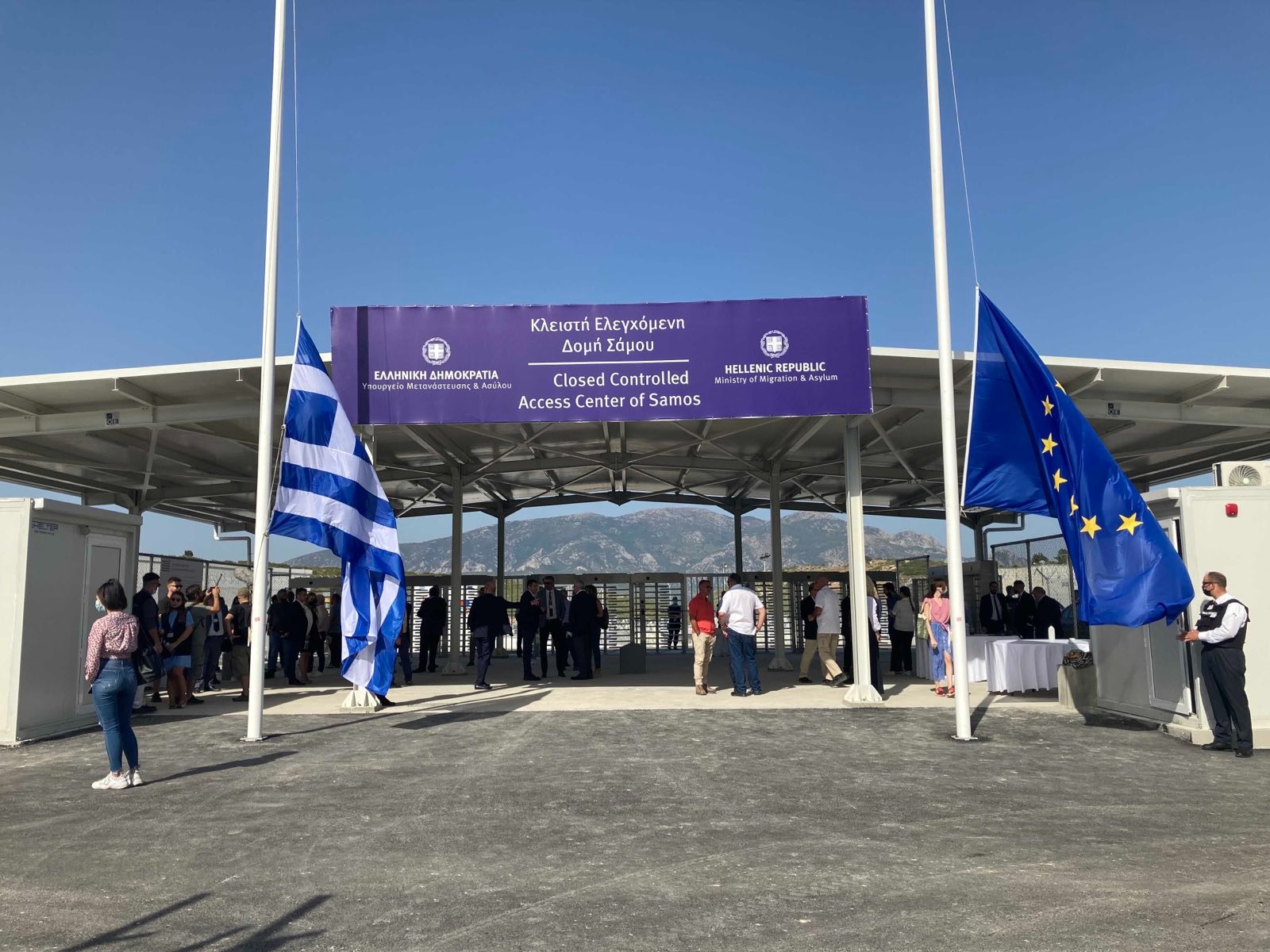
As on the islands of Chios, Kos, Leros and Lesbos, the facilities are considered “hotspots”. The term refers to a camp system, established by the European Commission in 2015. The obligation to stay in a “hotspot” is based on an agreement between the EU and Turkey from the year. “Geographical restrictions” stipulated there force asylum seekers to wait on the islands for the outcome of their procedure, which can sometimes take several years. For this reason, the facilities are notoriously overcrowded. The Greek asylum law, which came into force at the beginning of 2020, contains further “restrictions on freedom”, including for new arrivals, for example.
“Greece is fulfilling its obligations and protecting European borders and our common ideals,” Deutsche Welle quotes the Greek Minister for Migration and Asylum, Notis Mitarakis, as saying at the opening on Samos. Mitarakis is known as a hardliner, advocating pushbacks of refugees to Turkey and citing a high number of deportations as a priority.
The EU continues to ignore these refoulements, which are contrary to international law. Even during the opening ceremony, two rubber dinghies are said to have arrived on Samos, only two of the refugees were registered, all others were driven back to Turkey, according to Deutsche Welle. Literally at the same time, EU Commission Vice-President Margaritis Schinas praised the camp, saying that “asylum seekers and migrants” would be given a dignified stay there.
Biometrics and cameras
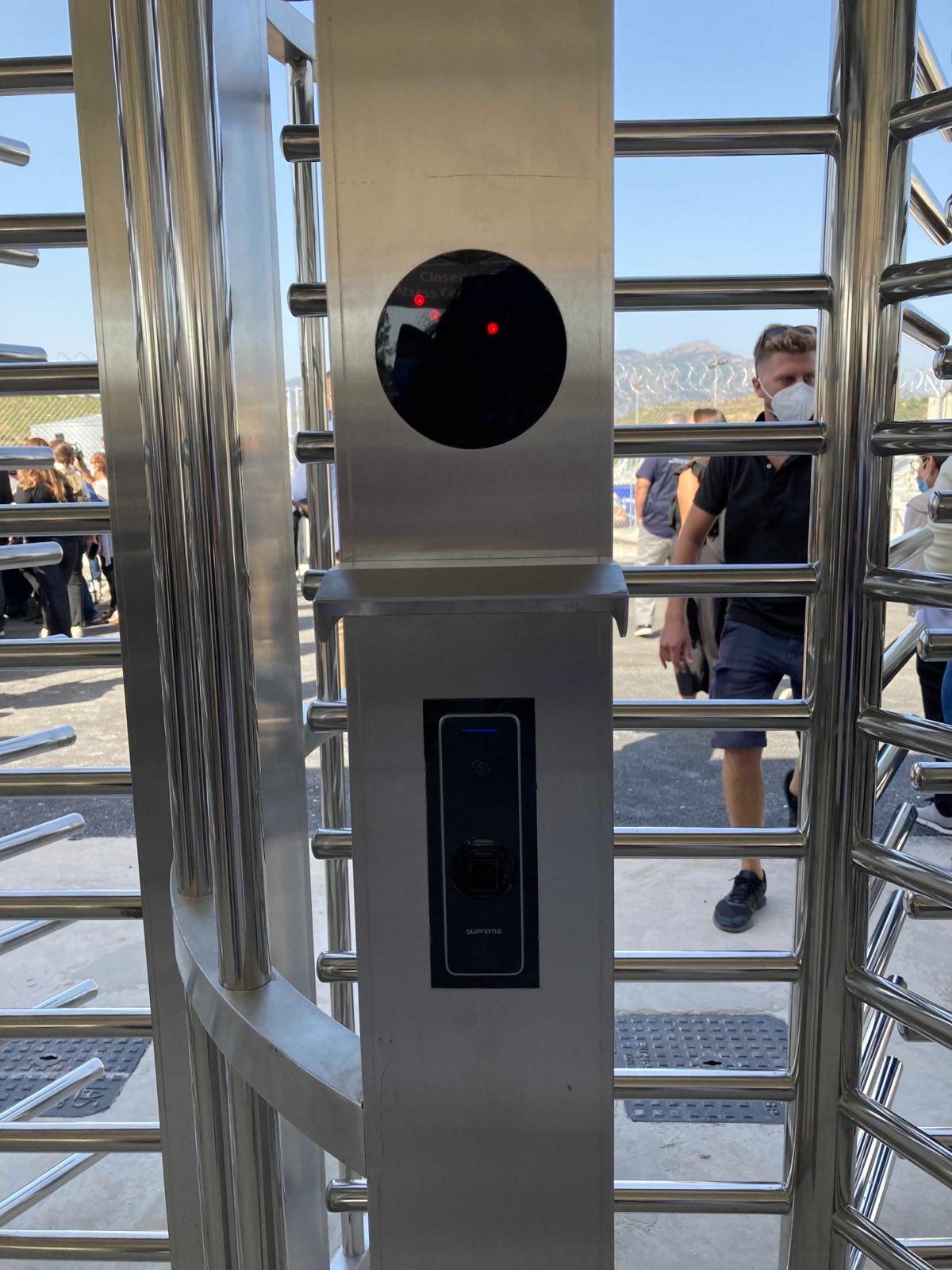
The inmates refer to the place as “Guantanamo”, the Deutsche Welle reports. It is surrounded by watchtowers, and entry is only possible through revolving doors and two-factor authentication. Those who want to enter have to show a chip and have their biometric data checked on a fingerprint scanner.
All-round video cameras are installed throughout the camp, which react to movements on the fence and are supposed to detect “suspicious behaviour” with the help of “artificial intelligence”. Together with drones, alarm systems, metal detectors and X-ray equipment, the cameras form a system called “Centaur”. The name comes from Greek mythology and means a violent mythical creature made of horse and man.
The surveillance platform on Samos is part of the project “National Migration Strategy 2020-2021, Protection of the Aegean Islands”, in which the government sets priorities for dealing with asylum seekers. All information converges in a new monitoring centre housed in the building of the Ministry of Migration and Asylum in Athens. Last week, the supreme authority had presented the installation to journalists. The connected authorities use the “Microsoft 365” platform for their work, which the ministry rapturously describes as “democratic”.
The research and test of new technologies similar to those on the five Mediterranean islands and at Camp Fylakio on the Evros River is the responsibility of the state centre for security studies KEMEA. The organisation is also involved in numerous EU security research projects. Many of the companies involved there will meet next week at the annual “World Border Security Congress” in Athens, which is being opened by Minister Mitarakis himself. The focus of the congress fair will be border surveillance systems with “artificial intelligence”; corresponding projects in Greece, such as “ROBORDER” or an airship from Frontex, are presented in an accompanying promotional material.
EU supports walls and fences
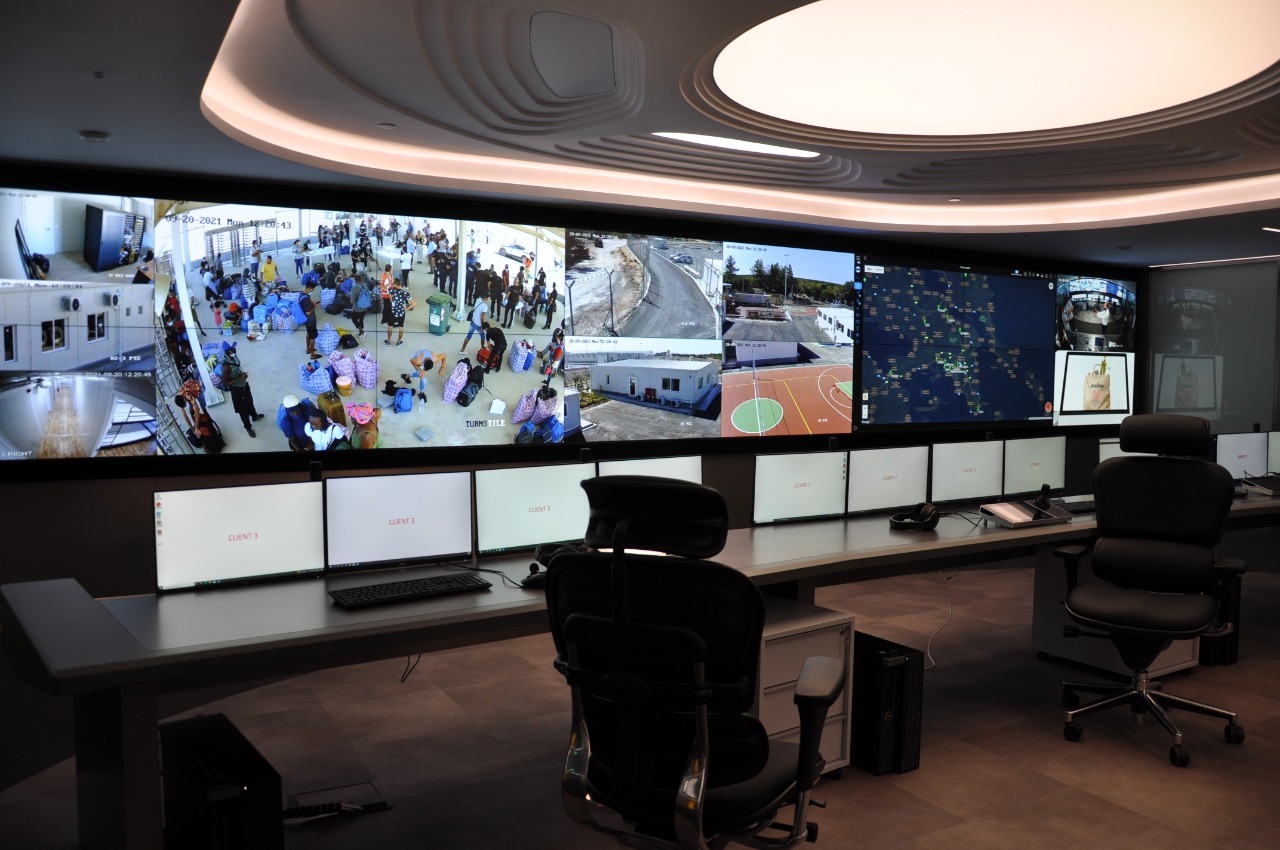
The camp on Samos is fully funded by the EU with around 43 million Euros. In total, the Commission is providing 276 million Euros for all centres on the five islands. An agreement to this effect was signed by EU Commissioner Ylva Johansson and the Greek government last December, with the money coming from the Asylum, Migration and Integration Fund (AMIF). In case of the camp in Fylakio, which is upgraded like the ones on the islands, 18 million Euros come from the Internal Security Fund (ISF).
Originally, the Commission had insisted that the camps should be generally open to access and leave. There had therefore been a dispute over the term “Closed Controlled Access Centre” pushed through by the Greek government, because the EU finances prisons or fences at most indirectly. Brussels was reassured by Athens with the promise that some of the inmates would be allowed to leave the camp at certain times.
Greek authorities are also equipping up to 24 camps on the mainland with fences and walls, with support from the EU and the International Organisation for Migration (IOM), according to Solomon magazine. Additional funding comes from the ISF, which is also managed by the Commission. According to Al Jazeera, this pays for 75 % of the expenses for surveillance technology in 39 camps on the mainland. Politico reports that the Greek government recently applied for further EU funding to build a fence on the Greek-Turkish land border, pending a response from the Commission.
Secret pot and hidden EU funds

For the implementation of such measures, the government in Athens had set up a new pot for “special expenses” in the field of national security last year. Critics speak of a “black fund” whose inflows and outflows would also have to be controlled by the Commission because of the effects on European Stability Mechanism. However, the Commissioner for Home Affairs, Ylva Johansson, answers parliamentary questions on the matter only sketchy.
Greece is receiving further, hidden EU financial support through the suspension of requirements of the European Stability Mechanism. The government had requested that VAT rates on the islands of Samos, Chios, Kos, Leros and Lesbos continue to be reduced by 30%, with savings expected to amount to around 60 million Euros annually. The Eurogroup agreed to the request, arguing that it would calm the population’s resistance to the camps.
Image: The new camp is secured with a double fence and NATO blade wire (Petra Molnar).
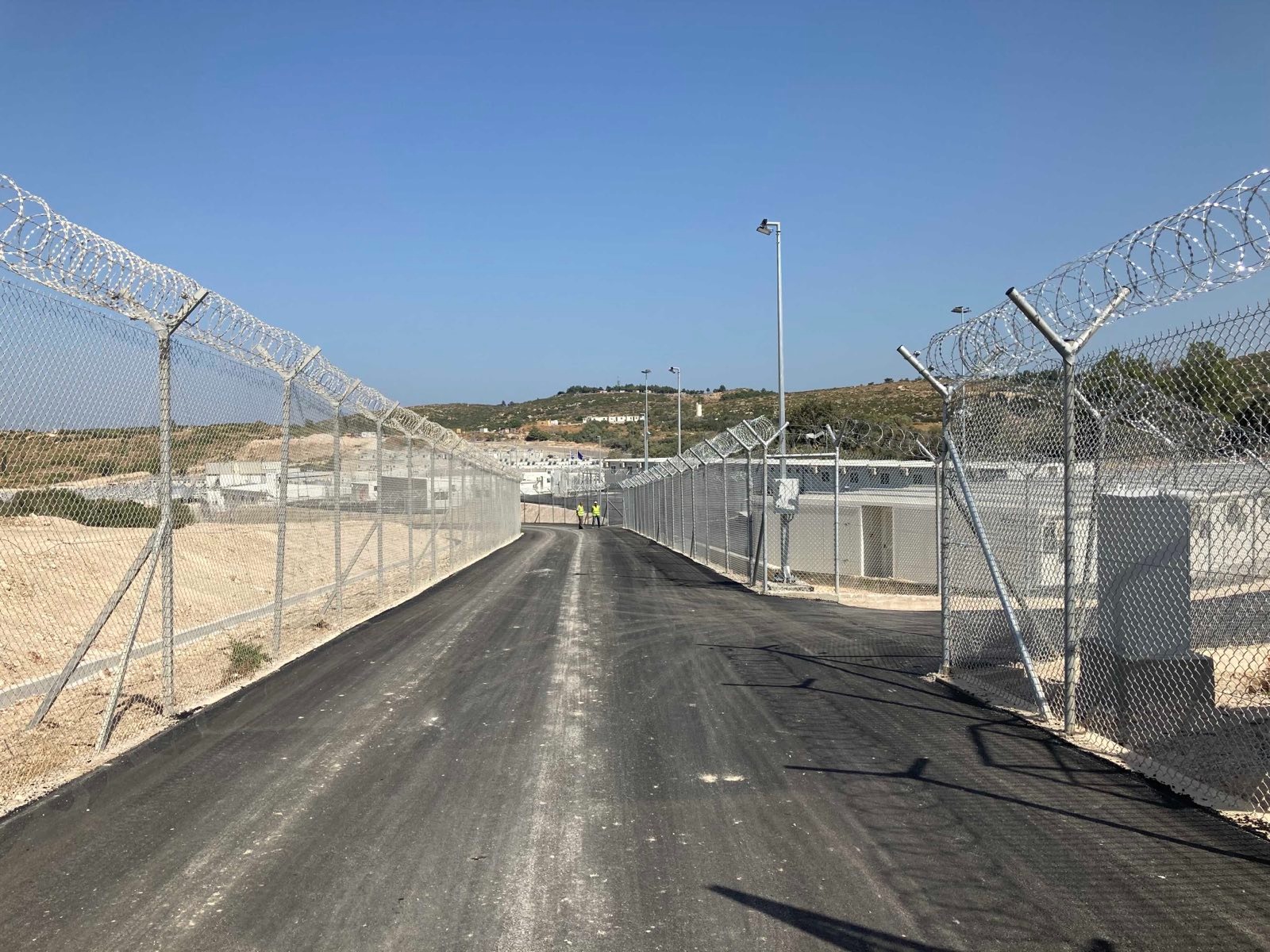


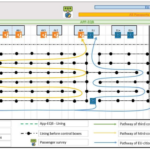

Leave a Reply